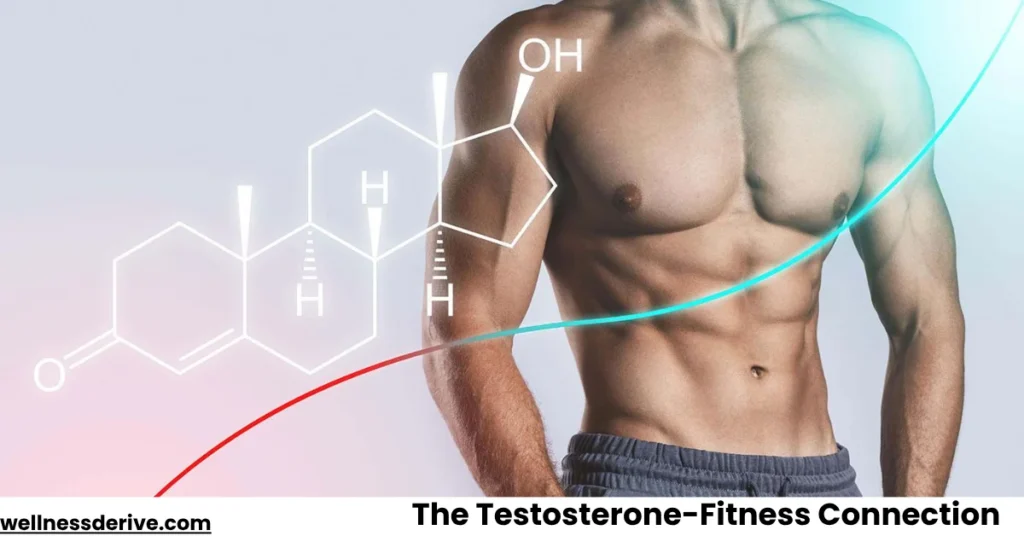Whether you’re aiming to set a personal record on the squat rack or simply shed a few stubborn pounds, your body’s hormonal balance plays a crucial role in how effectively you reach your goals. Among all the hormones that influence performance and recovery, testosterone stands out as a foundational driver of strength, stamina, and fat metabolism.
Optimizing testosterone health can unlock the full potential of a fitness regimen. In this article, we’ll explore exactly how testosterone influences your workouts, the consequences of Low T, and what you can do to maintain hormone health that supports your active lifestyle.
Why Testosterone Matters for Fitness
Testosterone is often called the “male hormone,” but that label only scratches the surface of its importance. While testosterone is indeed responsible for male sexual development and reproductive function, it also fuels the core physical traits associated with fitness: muscular strength, endurance, recovery capacity, and lean body composition.
When testosterone levels are in a healthy range, your body is primed to respond to training with gains in muscle and reductions in fat. Conversely, if testosterone production dips too low—a condition commonly referred to as Low T—your workouts can start to feel like an uphill battle with diminishing returns.
Strength and Muscle Growth
One of the most direct connections between testosterone and fitness lies in how this hormone influences protein synthesis. When you lift weights or engage in resistance training, you create microtears in your muscle fibers. Repairing and rebuilding these fibers is what leads to muscle growth—and testosterone is a critical part of this process.
Healthy testosterone levels:
- Increase the rate of protein synthesis, allowing muscles to rebuild stronger and thicker
- Stimulate satellite cells that assist in muscle repair
- Support production of growth factors such as IGF-1 (insulin-like growth factor 1), which further accelerates hypertrophy
On the flip side, Low T can blunt these adaptations. Men with chronically low testosterone often report difficulty adding or maintaining muscle mass even when their training and nutrition are on point. If you’ve been working hard in the gym but not seeing proportional results, it may be worth evaluating your testosterone health as a potential missing piece of the puzzle.
Stamina and Energy
Testosterone doesn’t just impact strength; it also affects how much energy you have to sustain your workouts. This hormone helps regulate red blood cell production, which influences oxygen delivery to working muscles. Adequate testosterone levels can improve aerobic capacity and stamina, making it easier to power through longer training sessions without excessive fatigue.
When testosterone dips too low, many men experience:
- Decreased motivation to exercise
- Early onset of fatigue during workouts
- Slower recovery between training sessions
Over time, this lack of energy can erode consistency—the most important ingredient in any fitness program. If you’re finding it harder to get off the couch or struggling to complete routines that used to feel manageable, Low T may be a contributing factor.
Fat Loss and Metabolism
Testosterone also plays a pivotal role in regulating body composition. Healthy testosterone levels promote lean mass retention while supporting the mobilization and oxidation of stored fat. Essentially, testosterone helps your body prioritize muscle over fat.
Men with Low T often report increased fat accumulation—particularly around the abdomen. Research has shown that low testosterone is strongly associated with higher body fat percentages and increased risk of metabolic disorders, including insulin resistance and type 2 diabetes.
When testosterone levels are optimized, you’re more likely to:
- Maintain a faster metabolic rate
- Lose visceral (belly) fat more efficiently
- Retain lean muscle during periods of calorie restriction
In other words, testosterone health can make or break your fat-loss efforts. That’s why so many fitness professionals recommend hormone evaluations for men who feel like they’re “doing everything right” but still can’t shed unwanted pounds.
Signs Your Testosterone May Be Low
How do you know if Low T could be holding you back? While the only way to confirm testosterone deficiency is through lab testing, there are some common symptoms to watch for:
- Persistent fatigue, even with adequate sleep
- Decreased strength or stamina
- Loss of muscle mass
- Increased body fat
- Low motivation and mental fog
- Reduced libido or sexual performance
If you recognize several of these signs in yourself, it’s wise to consult a men’s health provider experienced in hormone optimization.
What You Can Do to Support Healthy Testosterone
While medical treatment is sometimes necessary to correct hormone deficiencies, there are also evidence-based lifestyle strategies you can implement to support testosterone health naturally:
- Prioritize strength training. Resistance exercise is one of the most effective ways to maintain and even boost testosterone levels.
- Get enough sleep. Poor sleep quality has been linked to lower testosterone production.
- Eat a balanced diet. Make sure you’re consuming sufficient healthy fats, protein, and micronutrients like zinc and vitamin D.
- Manage stress. Chronic stress elevates cortisol, which suppresses testosterone.
- Maintain a healthy weight. Excess body fat—especially around the midsection—can lead to lower testosterone.
By combining these habits with professional care when necessary, you can create the hormonal environment that supports peak performance and lasting results.
Final Thoughts
If you’re serious about reaching your fitness goals, you can’t afford to ignore the impact of testosterone on your body’s ability to build muscle, burn fat, and recover effectively. The connection between testosterone and fitness is clear: when your hormone health is optimized, you’re more likely to feel stronger, more energetic, and better equipped to achieve the results you want.
Disclaimer: The content on Wellness Derive is for informational purposes only and not a substitute for professional medical advice, diagnosis, or treatment. Always consult a healthcare provider for medical concerns.



